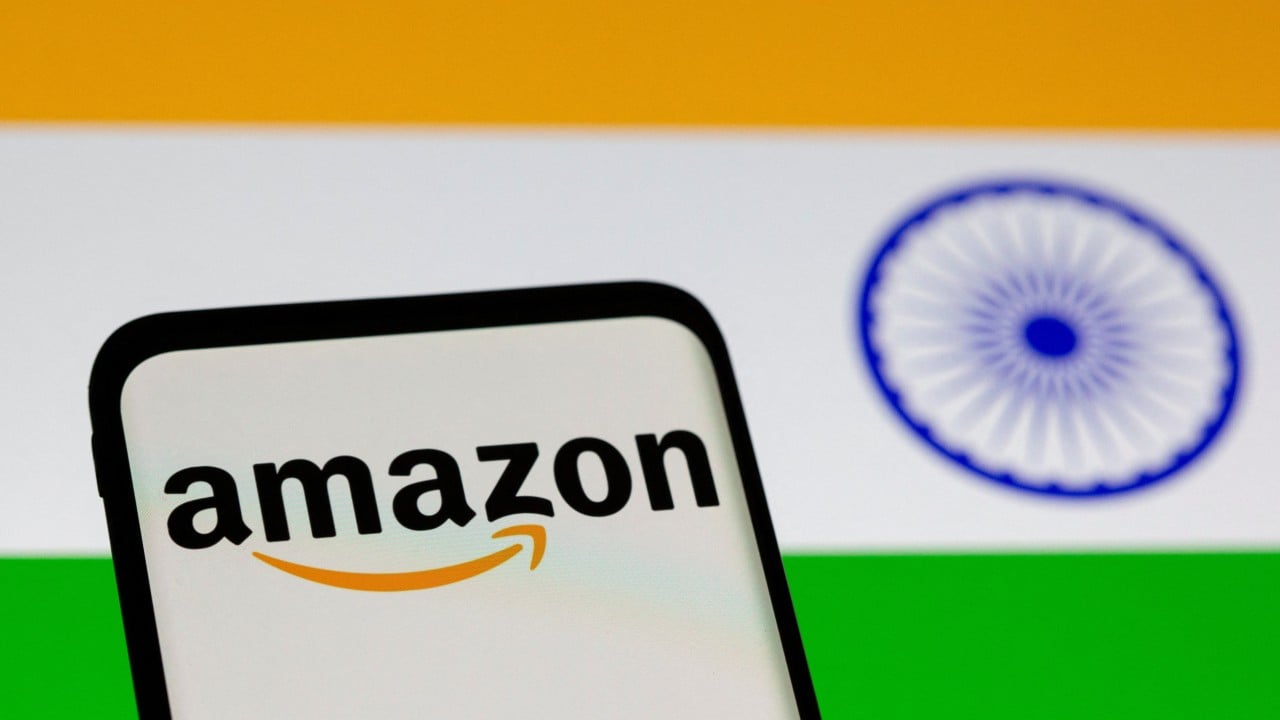India’s commerce minister has sparked controversy by criticising online platforms including Amazon for “predatory pricing” practices that undermine small businesses, a move analysts suggest is aimed at cautioning global e-commerce players while reassuring local retailers – a key voter base for the ruling party.
“When Amazon says that we are going to invest a billion dollars in India and we all celebrate, we forget the underlying story that the billion dollars are not coming in for any great service or any investment to support the Indian economy,” Piyush Goyal said at the launch of a new report by the Pahle India Foundation on e-commerce’s impact on employment and consumer welfare last week.
Goyal noted that Amazon had suffered “a billion-dollar loss in their balance sheet” in the previous financial year and suggested the money was spent on legally protecting the company’s practices.
“They paid Rs 1,000 crores [10 billion Indian rupees or US$120 million] to professionals. I do not know who these professionals are … I would love to know, which chartered accountants, professionals or lawyers get Rs 1,000 crores unless you are paying all the top lawyers to block them so that nobody can fight a case against you,” Goyal said.
Such losses smacked of “predatory pricing”, Goyal noted, especially since the company was not allowed to sell any goods directly to consumers in the country.
The minister said e-commerce companies were eating into the high-value products of family-run stores that enabled them to survive. Such stores had virtually disappeared in Europe and America due to the e-commerce boom, he said.

Amazon India declined to comment on Goyal’s remarks.
But the company shared a blog post from June last year in which CEO Andy Jassy reiterated Amazon’s commitment to enabling small businesses, digitisation, and job creation during a meeting with Indian Prime Minister Narendra Modi.
At that time, Amazon committed to investing an additional US$15 billion in India over the next seven years, which would take the company’s total investment across all businesses to US$26 billion, the blog post said.
India’s e-commerce sector is projected to grow at a compound annual growth rate of 27 per cent from 2018 to 2030, according to Pahle India Foundation’s report.
One of the fastest-growing major markets, Indian consumers have increasingly been buying everything from smartphones to medicines online.
However, less than 20 per cent of the offline vendors reported a physical store closure in their neighbourhood since 2020 when e-commerce started flourishing in the wake of stringent pandemic-induced lockdowns, the report said.
A day after firing the broadside against online retailers, Goyal said the government was not against e-commerce and only wanted to ensure fair competition.
“We are very clear that we want to invite FDI [foreign direct investment], we want to invite technology, we want to have the best of the world, and we are not against online at all,” he said.

Analysts say Goyal probably wanted to caution global online platforms against going overboard, while at the same time reassure small and medium businesses which comprise a significant voter base for India’s ruling Bharatiya Janata Party (BJP).
“There is a large section of retailers and traders who are a significant element of Indian polity, and it is important for the government to send the right kind of signals,” said Lloyd Mathias, leading New Delhi-based angel investor and business strategist.
“But the big concern is it should not send wrong signals to overseas investors,” he said, adding that India’s e-commerce policy ought to be guided by prioritising the interest of consumers.
Irrespective of any short-term concerns, Mathias said global companies were unlikely to have any second thoughts about operating in India because of the large size of the e-commerce market. According to India Brand Equity Foundation, India has more than 930 million internet subscribers, including about 350 million online users who actively engage in transactions.
Others said the minister’s remarks were unlikely to lead to any kind of shake-up.
“I personally do not feel that this comment was timed as a precursor to any kind of major regulatory change being planned by the government,” said Santosh Sreedhar, partner at Avalon Consulting.
Sreedhar noted, however, that the impact of e-commerce on small retailers is a matter of concern not just in India, but also in the developed countries.

Predatory pricing could result in “monopolistic behaviour”, analysts said, and called for more rules and regulations to address the issue.
“Even though this strategy is beneficial to the consumer initially, it is against the concept of free and fair competition and may result in monopolistic behaviour,” said Haroon Asrar, partner at law firm Solomon & Co.
“Even the consumers who would benefit at the initial stage would end up paying more for the same products and services.”
The Competition Commission of India, a government body meant to ensure fair competition, had in 2020 investigated concerns about predatory pricing by online platforms including Amazon, but the investigation was eventually dismissed.
Siddharth Mahajan, a partner at Delhi law firm Athena Legal, said the government had been working on an e-commerce policy that was “expected to cover a lot of issues related to predatory pricing and discounting”.
Mahajan also noted that foreign-owned online retailing platforms including Amazon and Flipkart are not allowed to directly sell products in the country.
“At the end of the day, for e-commerce to flourish, a level playing field is required between foreign owned retailers and Indian-owned ones, and a fair and balanced policy should take care of the interest of all stakeholders,” he said.


